For decades, the sitcom (situation comedy) has been a cornerstone of television programming, offering viewers a reliable source of laughter, comfort, and relatable human experiences. But beyond the punchlines and familiar living rooms, certain iconic sitcoms have done more than just entertain; they have redefined genres, pushed societal boundaries, sparked cultural conversations, and profoundly influenced the landscape of television as we know it. These aren't just funny shows; they are groundbreaking TV comedies that left an indelible mark on history.
From pioneering multi-camera formats to tackling sensitive social issues, and from creating unforgettable characters to revolutionizing network programming, the best sitcoms of all time are testament to the power of humor as a vehicle for change. If you're curious about the shows that shaped the way we laugh, think, and watch, prepare to revisit the timeless brilliance of television's most impactful comedies. This article delves into the most influential sitcoms that truly changed the game.
More Than Just Jokes: The Enduring Impact of Game-Changing Sitcoms
What elevates a good sitcom to an iconic and revolutionary TV series? It's a combination of factors that resonate far beyond its initial run:
- Social Commentary: Tackling taboo subjects or reflecting societal shifts in an accessible way.
- Format Innovation: Pioneering new filming techniques, narrative structures, or character development.
- Cultural Influence: Shaping popular culture, fashion, language, and even social attitudes.
- Character Archetypes: Creating archetypal characters that become benchmarks for future performances.
- Longevity and Legacy: Maintaining relevance and drawing new audiences decades after their premiere.
- Network Impact: Dramatically improving network ratings, setting new standards for quality, or opening doors for diverse voices.
Let's pull up a chair and explore the classic comedies that redefined television.
The Hall of Fame: Sitcoms That Rewrote the Rules
1. I Love Lucy (CBS, 1951-1957): The Blueprint of the Modern Sitcom
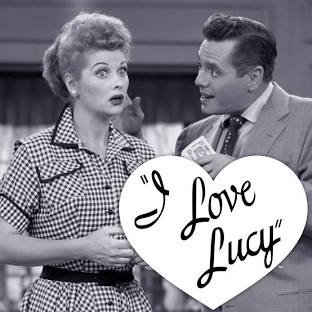
It's impossible to overstate the influence of I Love Lucy. Starring the legendary Lucille Ball and Desi Arnaz, this show revolutionized television production. It was the first to use the three-camera technique with a live studio audience (a standard still used today), pioneering the concept of reruns by filming on 35mm film instead of kinescope. Beyond its technical innovations, its portrayal of a strong, albeit zany, female lead and a truly integrated on-screen couple (with Desi Arnaz's Cuban heritage) was groundbreaking for its era. It set the standard for comedic timing, physical comedy, and the very structure of the multi-camera sitcom.
- Why it changed TV: Pioneered 3-camera filming, live audience, reruns, and set the standard for physical comedy.
- Keywords: I Love Lucy, Lucille Ball, classic sitcom, TV history, 3-camera, pioneering television.
2. All in the Family (CBS, 1971-1979): The Unflinching Mirror of Society
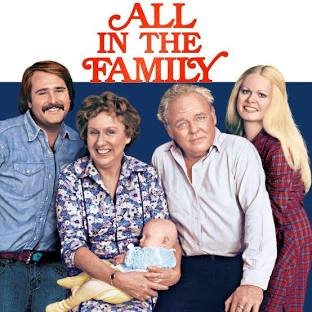
Norman Lear's All in the Family ripped open the polite veneer of television by directly addressing controversial issues like racism, sexism, homophobia, war, and class conflict through the lens of the bigoted but strangely lovable Archie Bunker. It was a radical departure from the sanitized sitcoms of its time, sparking nationwide debates and proving that comedy could be a powerful tool for social commentary. Its raw honesty and willingness to tackle sensitive topics made it a groundbreaking social commentary sitcom and redefined the genre's potential.
- Why it changed TV: Tackled controversial social issues head-on, sparked national dialogue, and proved comedy could be provocative.
- Keywords: All in the Family, Norman Lear, social commentary, controversial sitcom, groundbreaking TV.
3. The Mary Tyler Moore Show (CBS, 1970-1977): A Woman's Place is in the Newsroom
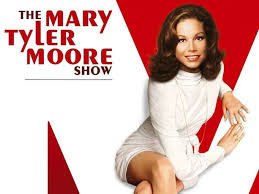
The Mary Tyler Moore Show was a beacon of progress for women on television. It depicted Mary Richards, a single, independent woman in her 30s, pursuing a career as an associate producer at a Minneapolis TV station. Breaking away from the trope of women being defined solely by their marital status or family, the show celebrated female friendship, professional ambition, and the challenges of balancing life and work. Its nuanced characters and witty writing made it a blueprint for feminist sitcoms and workplace comedies.
- Why it changed TV: Celebrated independent women, workplace focus, influential female lead, progressive themes.
- Keywords: Mary Tyler Moore, feminist sitcom, workplace comedy, independent woman, groundbreaking female lead.
4. M*A*S*H (CBS, 1972-1983): Blending Comedy with War's Harsh Realities
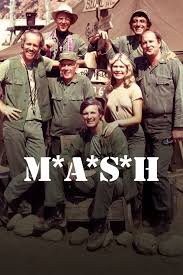
Set during the Korean War, M*A*S*H expertly balanced sharp, often dark comedy with the grim realities of war, pain, and human suffering. It pushed the boundaries of what a sitcom could be, often incorporating dramatic elements and exploring complex themes of morality, duty, and the psychological toll of conflict. Its blend of humor and pathos resonated deeply, and its legendary final episode remains one of the most-watched in television history, solidifying its place as a seminal dramedy sitcom.
- Why it changed TV: Masterful blend of comedy and drama, explored war's realities, powerful storytelling, highly influential.
- Keywords: MASH, dramedy, war sitcom, Korean War, groundbreaking television.
5. Cheers (NBC, 1982-1993): The Comfort of Community and Character
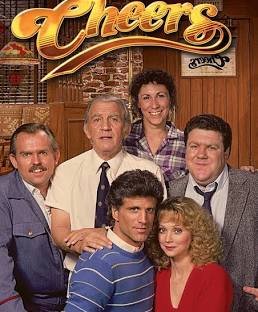
Cheers perfected the ensemble sitcom, creating a beloved “third place” where a diverse group of regulars gathered, creating a profound sense of community. Its witty banter, intricate character dynamics, and slow-burn romances (like Sam and Diane) made it a critical darling and a massive ratings success, revitalizing NBC's Thursday night lineup. It influenced countless subsequent sitcoms with its focus on character-driven comedy and the idea of a shared, familiar space. It's the ultimate ensemble sitcom.
- Why it changed TV: Defined the ensemble sitcom, iconic characters, witty dialogue, and built a sense of community.
- Keywords: Cheers, ensemble cast, workplace comedy, bar setting, character-driven sitcom.
6. The Cosby Show (NBC, 1984-1992): Redefining the Black Family on Television
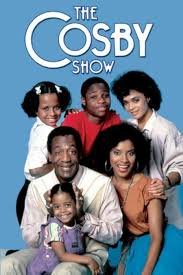
At its peak, The Cosby Show was a cultural phenomenon that revolutionized the portrayal of Black families on television. It presented the Huxtables as an affluent, loving, and educated two-parent Black family, a stark contrast to many previous stereotypes. The show's focus on universal family dynamics, gentle humor, and positive role models made it a massive ratings success and a significant step forward in representation, paving the way for many diverse voices in comedy. It was a groundbreaking family sitcom for its time.
- Why it changed TV: Redefined representation of Black families, universal family appeal, massive cultural impact, positive role models.
- Keywords: The Cosby Show, family sitcom, Black representation, cultural phenomenon, NBC.
7. Seinfeld (NBC, 1989-1998): The “Show About Nothing” That Was Everything

Seinfeld broke all the rules by being the “show about nothing.” It eschewed traditional sitcom tropes like warm embraces and moral lessons, instead focusing on the mundane absurdities of everyday life and the petty neuroses of its four main characters. Its observational humor, intricate callbacks, and lack of a traditional plot structure made it a revolutionary and highly influential meta-comedy sitcom. It reshaped comedic writing and proved that audiences could embrace unconventional storytelling.
- Why it changed TV: Revolutionary “show about nothing” format, observational humor, meta-comedy, no lessons learned.
- Keywords: Seinfeld, show about nothing, meta-comedy, observational humor, iconic sitcom.
8. The Simpsons (Fox, 1989-Present): Animation's Enduring Reign
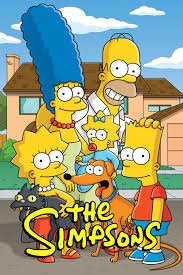
The Simpsons didn't just change animation; it changed television. Breaking out of The Tracey Ullman Show shorts, it became a prime-time animated series, proving animation could sustain adult viewership beyond Saturday mornings. Its razor-sharp satire, incredible longevity, and ability to parody pop culture, politics, and family life have made it a global phenomenon. It paved the way for countless adult animated series and remains a benchmark for satirical comedy.
- Why it changed TV: Established prime-time adult animation, pop culture satire, incredible longevity, global phenomenon.
- Keywords: The Simpsons, adult animation, satire, pop culture, long-running sitcom.
9. Friends (NBC, 1994-2004): The Comfort Blanket of a Generation
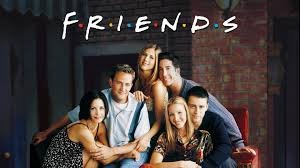
While perhaps not as formally innovative as some others, Friends undeniably captured the zeitgeist of 1990s and early 2000s youth culture, becoming a global sensation that defined an era. Its focus on six young adults navigating life, love, and careers in New York City resonated universally. It perfected the “hangout sitcom” formula, creating immensely relatable characters and memorable catchphrases that permeated popular culture. Its immense syndication success and enduring popularity prove its lasting cultural impact as a definitive 90s sitcom.
- Why it changed TV: Defined a generation's youth culture, perfected “hangout sitcom,” global phenomenon, massive cultural impact.
- Keywords: Friends, 90s sitcom, hangout comedy, pop culture icon, ensemble cast.
10. Modern Family (ABC, 2009-2020): Evolution of the Family Sitcom
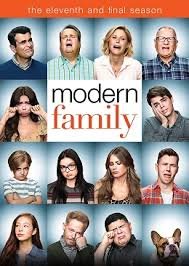
Modern Family successfully updated the family sitcom for the 21st century by showcasing a diverse, interconnected family unit, including traditional, blended, and same-sex parents. Its mockumentary style, sharp writing, and heartfelt humor offered a fresh perspective on contemporary family life. The show's ability to be genuinely funny while subtly exploring evolving societal norms made it a critical and commercial success, solidifying its place as a pioneering contemporary family sitcom.
- Why it changed TV: Modernized family sitcom, diverse family structures, mockumentary style, witty and heartfelt.
- Keywords: Modern Family, contemporary sitcom, diverse families, mockumentary, family comedy.
The Enduring Legacy of Laughter and Innovation
The iconic sitcoms on this list are more than just nostalgic favorites; they are testaments to television's power to reflect, challenge, and shape society. They innovated technically, daringly explored social issues, created unforgettable characters, and perfected comedic storytelling. Their influence can be seen in almost every comedy produced today, proving that laughter, when crafted with purpose and brilliance, can indeed change the world, one episode at a time. These revolutionary TV comedies continue to entertain and inspire new generations, solidifying their place in the annals of television history.







